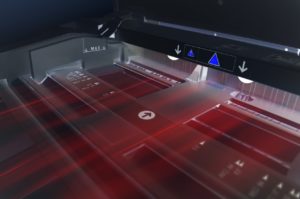Important Concepts in Sales Tax Administration
Free resource to help you solve your most common corporate sales and use tax challenges.
One of the benefits of the manufacturing industry is that it provides many opportunities to take advantage of sales tax exemptions, and with that, reap major cost savings. Many states provide exemptions for items used in the manufacturing process, such as machinery and equipment and consumable supplies.
The caveat is that manufacturing exemptions vary by state.
Before you can claim any exemptions, you need to know how the state defines manufacturing. Don’t be surprised if a state definition of manufacturing varies greatly from what you’d consider manufacturing!
Some states include non-traditional processes in their definition of “manufacturing” for exemption purposes. Additionally, states can define the beginning and ending of the manufacturing process differently, which affect what items are considered exempt.
This means you may work in an industry that you would never consider to be manufacturing, but that the state does for exemption purposes. Traditional manufacturer or not, there could be exemptions out there just waiting for you to take advantage of!

For these reasons, it is essential to closely examine a state’s statutes and regulations to correctly determine the state’s definition of the manufacturing process as well as what items are included in the state’s exemption. Only then can you uncover what exemptions are available for your company.
It takes a bit of work and research, but it can result in huge savings for your company. Not to mention huge accolades for you – the sales tax hero!
Let’s look at a specific state’s manufacturing regulations to see what kind of exemptions and saving opportunities we can uncover as an example. You may be shocked at some of the items and industries that fall under the state’s manufacturing exemption.
Texas is a great example of a state with lots of unexpected exemption opportunities lurking within its sales tax regulations.
Texas Regulation 34 TAC Sec. 3.293 state
______________________________________________________________________
(6) A person processing food for sale is a manufacturer and may claim a sales or use
tax exemption on purchases of equipment and other taxable items that qualify for
exemption under Tax Code, §151.318. For example, a restaurant may claim an
exemption on the purchase of an oven or a mixer directly used in baking or mixing.
______________________________________________________________________
Wow! A close examination of the state’s regulation tells us that a restaurant can claim a manufacturing exemption. A deli or a bakery in a grocery store may also qualify for this Texas manufacturing exemption on purchases of equipment. Let’s delve a little further…
Regulation 34 TAC Sec. 3.293 goes on to say that “A caterer may claim… a manufacturing exemption on qualifying equipment, such as mixers, used to prepare the food.” Great! This means that caterers can take advantage of the manufacturing exemption as well.
Yes! Even a caterer may be considered manufacturing in Texas. You can bet caterers would never call themselves manufacturers!

When digging into any manufacturing exemption research for your industry, you need to be careful and thorough. You need to know where your exemption starts and ends. For example, Texas allows manufacturers to claim and exemption when purchasing gas and electricity used in powering exempt manufacturing equipment other than equipment used in preparation or storage of prepared food (Tax Code, §151.317). A restaurant, bakery, or caterer may be able to claim an exemption on equipment, but the exemption does not extend to the energy used to power it.
Part of being thorough in your research is that you may stumble upon bonus savings that may apply to your industry beyond what you were originally searching for. One more hidden gem in Regulation 34 TAC Sec. 3.293 is that businesses that process food for sale qualify for an exemption on the wrapping and packaging used to package the food for sale and may give an exemption certificate to a supplier. Examples include disposable cups, paper and plastic containers, plastic utensils, and toothpicks – but not as manufacturing but under the resale exemption.
All it took was a little research into the state’s regulation and we’ve uncovered all kinds of unexpected exemptions that can be taken advantage of.

Texas is an example of a state with a very broad manufacturing exemption. Who would have ever thought that a restaurant qualifies for a manufacturing exemption?
This is why it is so critical to do a little bit of research, find the manufacturing and exemption regulations for the state(s) in which you operate, and go over those regulations with a fine-tooth comb. It is well worth it to put in the effort. A bit of sleuthing can result in major cost savings for your company, not to mention that it’s kind of fun for us sales tax nerds!
Even if you aren’t a traditional manufacturer, it’s worth taking a look to see if you qualify for any unexpected exemptions in a state. Here are a couple more examples of unexpected exemptions lurking in state regulations:
Granted, that last one is very niche example. But it just goes to show that no matter what industry you’re in, you never know what processes might qualify for a state’s manufacturing exemption!
Learning about sales tax for manufacturing is so valuable because of all the exemption opportunities that are available. It literally pays to learn more about these opportunities and to delve further into the nuances of how the exemptions apply so you can get the most out of the exemptions that are available to your business.

As a sales tax pro in the manufacturing industry, one of the most important aspects of your job is digging into each state’s definition of manufacturing so you understand how your processes are taxed and you are fully aware of any sales tax exemptions available to your company or your clients.
 About the Author:
About the Author:Diane L. Yetter is a strategist, advisor, speaker, and author in the field of sales and use tax. She is president and founder of YETTER Tax and founder of the Sales Tax Institute. You can find Diane on LinkedIn and Twitter.